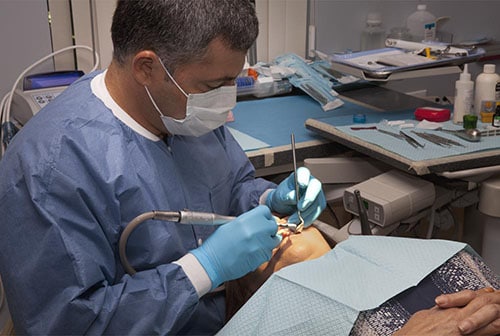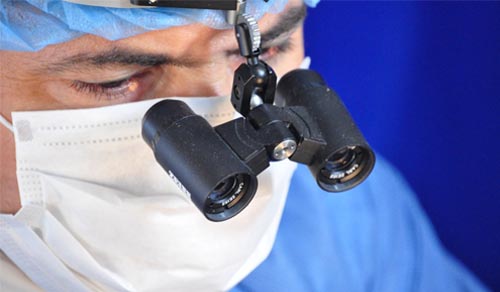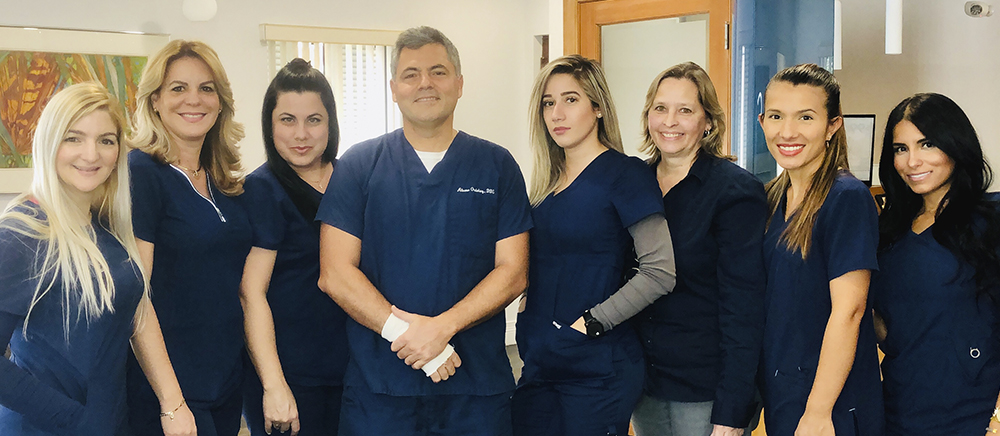Checkout Dr. Alvaro Ordonez, DDS Watch Video
It is rare to find a truly passionate individual who excels in their profession. Dr. Ordonez has not only devoted his life and work to providing quality dental care to his patients, but he also has served as an example of compassion, care, and ethical practices. With more than 21 years of experience in his field, Dr. Ordonez has accrued over 5,000 hours of continued education.
He has performed more than 6,000 successful implants and has earned international recognition as one of the world’s most prominent dental surgeons. Through his never ending drive for research and innovation, Dr. Ordonez has become a key speaker in International Conferences in more than 40 countries.
He holds important trademarks and certifications in the field which reinforce his unmitigated dedication and determination for highest achievement in the Dental Care Industry.
General Dentist Licensed to Practice Dentistry in the State of Florida, in Colombia (South America) and in Barbados.
His General Practice is related to:
- TMJ Disorders, Dental Occlusion and Orofacial Pain.
- Restorative Dentistry, Dental Implants and Dental Cosmetics.
His curriculum includes:
- Fellow, Master and Diplomate of the International Congress of Oral Implantologists.
- Vice President for Latin America Of the International Congress of Oral Implantologists. In charge of re organizing the chapters of the ICOI in Latin American Countries.
- Clinical innovations Subcommittee member. American Academy of Osseointegration. In charge of evaluating, selecting and grading the clinical innovations submitted to the American Academy of Osseointegration for presentation at the annual meeting.
- Member of the Executive Council of the South Florida Dental Association (Local Component of the ADA)
- Legislative Contact Dentist of the Florida Dental Association (Flad- Pac)
- Chair of the committee on the New Dentists for South Florida District Dental Association (ADA)
- Member of the Miami Winter Meeting committee.
- President of West Dade Dental Society.
- Member of the Scientific Committee of CEOLA-HELO (in charge of the selection of the speakers for the meetings and congresses)
- Member of the Scientific Committee of LAODI (Latin American Academy of Osseointegrated Dental Implants) in charge of the selection of the speakers for the meetings and congresses.
Implant Dentistry
Losing a tooth due to injury, dental decay, or gum disease can happen. However, in order to avoid causing problems for the adjacent teeth and your overall dental health, it is important to replace the tooth that has been lost. This can be done a number of ways including fixed bridges, removable partial or full dentures as well as a more recent procedure known as dental implants.
One of the most significant dental innovations in recent times, an implant is a small surgical fixture made of biocompatible metal or ceramic materials that is placed into the jawbone and functions in the same manner as the root of a tooth. In the same way that natural root supports the natural crown of your tooth, an implant once it fully integrates with the surrounding bone, provides a stable and durable foundation for a replacement tooth. Implants often support a crown for an individual tooth, but can also be used as abutment teeth for a dental bridge, or strategically placed to help stabilize a denture.
Single Tooth Dental Implant
In cases where a single tooth is missing, a dental implant supported crown is an effective replacement that replicates a natural tooth in almost every way. This approach can offer several benefits as compared to a traditional three unit fixed bridge by preserving the integrity of the adjacent natural teeth and preventing the progression of bone loss where a tooth has been lost. Additionally, a dental implant does not decay and cleaning the area can be easier than maintaining a fixed bridge.
Dental Implants to Replace Multiple Teeth
In cases where multiple teeth are missing or have been lost, dental implants can support fixed bridges or removable dentures.
Implant Supported fixed bridges
As opposed to a traditional fixed bridge, an implant-supported bridge preserves the integrity of the adjacent teeth and virtually stops the bone resorption process that naturally occurs where teeth have been lost. By maintaining the bone in the edentulous areas (the space without teeth), normal facial contours are supported and there is no appearance of a sagging or caved in look. As they are permanently anchored in the jawbone, implant supported bridges fully restore one’s natural biting and chewing capacity.
Implant-Supported Overdentures
When all of the teeth in the upper or lower jaw are missing, dental implants offer comfortable, stable and cosmetically pleasing solutions to restore a functional smile.
An implant-anchored overdenture is essentially a removable denture that clips on to either a ball or bar attachment in the front part of the jaw. The implant supported attachments help to provide added stability to the denture, keeping it in place and ensuring optimal comfort as well as function. Because the dental implants keep the denture from slipping or dislodging, there is no need to deal with any messy denture adhesives.
Full Arch Fixed Bridge
As an alternative to full dentures, a full arch fixed bridge anchored to multiple dental implants can offer a permanent solution in situations where all the teeth are missing or have been deemed non-restorable and need to be replaced. A full arch fixed bridge anchored to dental implants is a highly stable and cosmetically pleasing solution that lets you eat and function as you would with a full set of natural teeth.
Implant Restorations
Losing teeth can be devastating for dental health, and it is generally caused by other harrowing dental concerns. An uneven or incomplete bite can be even more damaging to a bite and a smile, which is why replacing lost teeth is so important. There are several solutions that can be considered when replacing lost teeth, and dental implant restorations are one of them. Dental implants are the closest thing to real teeth. Many people with implants claim that they feel and perform more like real teeth than other options like bridges or dentures. This is because dental implants are surgically attached to the jawbone, allowing patients to eat and speak with the same confidence they did with a completely natural smile.
Dental implant restorations do require some surgery, so not all interested patients may be eligible. An implant dentist can evaluate an individual’s dental health to determine whether they are capable of supporting implants and can begin prepping for the necessary procedure. Implants are set into place with titanium posts that act as artificial tooth roots. Once implanted, these posts actually meld with the bone during the healing process. This is known as osseointegration and it is what firmly secures the artificial tooth to the jawbone. Once the implant is set in place, the custom-made artificial teeth can be placed into the posts to create a seamless new smile.
The artificial tooth or dental crown placed into the anchored posts can be designed to match remaining teeth in order to look as natural as possible. Dental implants may require repair or general maintenance with time and use, just like real teeth, as they are subject to wear and tear over time – but overall, they will look and feel like real teeth. Dental implant restorations can be used to replace all teeth, many teeth, or a few teeth – it all depends on the patient’s needs.








